University of Gastronomic Sciences
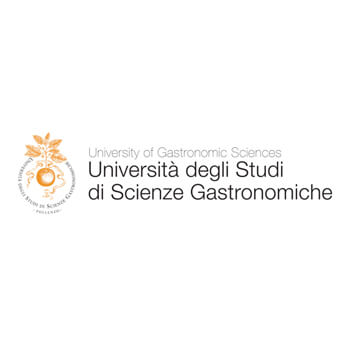
Founded: 2004
Address: Piazza Vittorio Emanuele 9 - Pollenzo, Italy
Phone: +39 0172 458511
Address: Piazza Vittorio Emanuele 9 - Pollenzo, Italy
Phone: +39 0172 458511
Here you find out University of Gastronomic Sciences complete information about fees, location, degree University of Gastronomic Sciences offers, number, website, and much more. University of Gastronomic Sciences is a leading university in Pollenzo - Italy.
You can also find out jobs at University of Gastronomic Sciences for students, teachers, and professors. We also update the database for an internship at University of Gastronomic Sciences for students.
The University of Gastronomic Sciences, founded in 2004 by the international non-profit association Slow Food in cooperation with the Italian regions of Piedmont and Emilia-Romagna, is a ministerially recognized, private non-profit institution. Its goal is to create an international research and education center for those working on renewing farming methods, protecting biodiversity, and buildin...g an organic relationship between gastronomy and agricultural science.
The university forms gastronomes, new professional figures with multi-disciplinary skills and knowledge in the fields of science, culture, politics, economics and ecology of food, working to apply them to production, distribution and sustainable consumption. UNISG students, hailing from around the world, gain dynamic experiences in artisanal and industrial food production, thanks to complementary education in both sciences and humanities, sensory training, and hands-on learning during study trips across five continents.
The “Strategic Plan” is a key document that outlines the university’s planned development over a three-year period. It expresses the institution’s fundamental mission and the characteristics that distinguish and qualify it within the Italian and international academic landscape.
The “2018-2020 Strategic Plan” of the University of Gastronomic Sciences reflects the results of the university’s first 13 years of life, defining its specific educational and scientific vocation and its highly international nature. Most importantly, it indicates the directions for future development that the university has set for itself. These are expressed through specific objectives for education, research and the third-stream mission.
The University of Gastronomic Sciences of Pollenzo is the first university in the world to accept Pliny’s ancient challenge, positioning it within the contemporary context of research, science and culture on a global scale and guided by a systemic vision, because gastronomy is everywhere. It does not concern only certain foods, certain ways of cooking and consuming them, certain traditions or certain places in the world. Every product of the land, the seas and the forests can be gastronomy. Every cuisine, from the simplest and most domestic to the most refined, can be gastronomy. Every mode of consumption can be gastronomy. Gastronomy is the study of everything related to food, understood as a cultural and scientific value. Gastronomy has to do with all living things, whether plant, animal or human. It is passion and love for life, wherever it is realized in relation to the primary and eternal need to eat.
Gastronomic sciences participate in and promote a complex, systemic and inclusive model of knowledge. This is not structured according to the dualistic paradigm of rigid opposing categories—like body/soul, perceptible/intelligible, praxis/theory—but according to the model of relationships and coevolution, of involvement and parity of value. Gastronomy is not just a nutritional necessity but also desire and pleasure; it simultaneously studies and comprises technical abilities, know-how, invention and the creative imagination. In gastronomic sciences, knowledge is both science and culture at the same time.
In the Pollenzo university’s vision, gastronomic sciences place theory and praxis, contemplation and observation, books and hands, mind and body, writing and orality, gesture and word on the same level, both by right and in practice. The interaction takes place as much on the plane of the natural sciences as the humanities, following a holistic and critical model in which the whole set of relationships inherent in the study of food define a domain that is greater than the sum of the individual disciplines, with the aim of producing new interdisciplinary and cross-cutting languages, rigorous but flexible, suited to meeting the epistemological, ethical, social and political challenges of our time. We must provide adequate responses to the emergencies that characterize our present in order to construct a better future for all the planet’s inhabitants.
Social and economic injustices, the ecological crisis and the scarcity of available natural resources have for some time been the cornerstones of our present emergencies, and they also call the issue of food profoundly into question. Many authoritative voices, from many sides, are increasingly suggesting the need for an “integral ecology,” which puts happiness and equality among peoples back at the heart of life on Earth. Gastronomic sciences contribute to providing responses and solutions for the establishment of a global ecological model based on favouring differences and biodiversity.
The University of Gastronomic Sciences fosters the assurance and continuous improvement of quality in all the areas of activity through which it implements and develops its mission.
To this end, the university has developed a structured and integrated system of rules, mechanisms and procedures. These are intended to guide the actions and behavior of all the actors involved at different academic and organizational levels of responsibility within the university towards the pursuit of the institution’s objectives. Maximum attention is reserved for the quality of the processes and results and meeting the needs of all the main stakeholders, starting with the students.
The Italian national system for evaluation, quality assurance and accreditation of universities operates in accordance with European standards and guidelines for the assurance of quality of higher education. The system is based on internal evaluation within each university, external evaluation and accreditation of campuses and courses.
The system of self-assessment, regular evaluation and accreditation (Autovalutazione, Valutazione periodica, Accreditamento, or AVA) represents the set of activities, in accordance with legal provisions, that involve the introduction of a system of initial and regular accreditation of courses and university campuses; regular evaluation of the quality, efficiency and results achieved by the universities; and the strengthening of the system for universities to self-assess the quality and effectiveness of their educational activities and research. The Italian National Agency for the Evaluation of the University and Research Systems (Agenzia Nazionale di Valutazione del sistema Universitario e della Ricerca, or ANVUR) has the task of establishing the national system.
You can also find out jobs at University of Gastronomic Sciences for students, teachers, and professors. We also update the database for an internship at University of Gastronomic Sciences for students.
The University of Gastronomic Sciences, founded in 2004 by the international non-profit association Slow Food in cooperation with the Italian regions of Piedmont and Emilia-Romagna, is a ministerially recognized, private non-profit institution. Its goal is to create an international research and education center for those working on renewing farming methods, protecting biodiversity, and buildin...g an organic relationship between gastronomy and agricultural science.
The university forms gastronomes, new professional figures with multi-disciplinary skills and knowledge in the fields of science, culture, politics, economics and ecology of food, working to apply them to production, distribution and sustainable consumption. UNISG students, hailing from around the world, gain dynamic experiences in artisanal and industrial food production, thanks to complementary education in both sciences and humanities, sensory training, and hands-on learning during study trips across five continents.
The “Strategic Plan” is a key document that outlines the university’s planned development over a three-year period. It expresses the institution’s fundamental mission and the characteristics that distinguish and qualify it within the Italian and international academic landscape.
The “2018-2020 Strategic Plan” of the University of Gastronomic Sciences reflects the results of the university’s first 13 years of life, defining its specific educational and scientific vocation and its highly international nature. Most importantly, it indicates the directions for future development that the university has set for itself. These are expressed through specific objectives for education, research and the third-stream mission.
The University of Gastronomic Sciences of Pollenzo is the first university in the world to accept Pliny’s ancient challenge, positioning it within the contemporary context of research, science and culture on a global scale and guided by a systemic vision, because gastronomy is everywhere. It does not concern only certain foods, certain ways of cooking and consuming them, certain traditions or certain places in the world. Every product of the land, the seas and the forests can be gastronomy. Every cuisine, from the simplest and most domestic to the most refined, can be gastronomy. Every mode of consumption can be gastronomy. Gastronomy is the study of everything related to food, understood as a cultural and scientific value. Gastronomy has to do with all living things, whether plant, animal or human. It is passion and love for life, wherever it is realized in relation to the primary and eternal need to eat.
Gastronomic sciences participate in and promote a complex, systemic and inclusive model of knowledge. This is not structured according to the dualistic paradigm of rigid opposing categories—like body/soul, perceptible/intelligible, praxis/theory—but according to the model of relationships and coevolution, of involvement and parity of value. Gastronomy is not just a nutritional necessity but also desire and pleasure; it simultaneously studies and comprises technical abilities, know-how, invention and the creative imagination. In gastronomic sciences, knowledge is both science and culture at the same time.
In the Pollenzo university’s vision, gastronomic sciences place theory and praxis, contemplation and observation, books and hands, mind and body, writing and orality, gesture and word on the same level, both by right and in practice. The interaction takes place as much on the plane of the natural sciences as the humanities, following a holistic and critical model in which the whole set of relationships inherent in the study of food define a domain that is greater than the sum of the individual disciplines, with the aim of producing new interdisciplinary and cross-cutting languages, rigorous but flexible, suited to meeting the epistemological, ethical, social and political challenges of our time. We must provide adequate responses to the emergencies that characterize our present in order to construct a better future for all the planet’s inhabitants.
Social and economic injustices, the ecological crisis and the scarcity of available natural resources have for some time been the cornerstones of our present emergencies, and they also call the issue of food profoundly into question. Many authoritative voices, from many sides, are increasingly suggesting the need for an “integral ecology,” which puts happiness and equality among peoples back at the heart of life on Earth. Gastronomic sciences contribute to providing responses and solutions for the establishment of a global ecological model based on favouring differences and biodiversity.
The University of Gastronomic Sciences fosters the assurance and continuous improvement of quality in all the areas of activity through which it implements and develops its mission.
To this end, the university has developed a structured and integrated system of rules, mechanisms and procedures. These are intended to guide the actions and behavior of all the actors involved at different academic and organizational levels of responsibility within the university towards the pursuit of the institution’s objectives. Maximum attention is reserved for the quality of the processes and results and meeting the needs of all the main stakeholders, starting with the students.
The Italian national system for evaluation, quality assurance and accreditation of universities operates in accordance with European standards and guidelines for the assurance of quality of higher education. The system is based on internal evaluation within each university, external evaluation and accreditation of campuses and courses.
The system of self-assessment, regular evaluation and accreditation (Autovalutazione, Valutazione periodica, Accreditamento, or AVA) represents the set of activities, in accordance with legal provisions, that involve the introduction of a system of initial and regular accreditation of courses and university campuses; regular evaluation of the quality, efficiency and results achieved by the universities; and the strengthening of the system for universities to self-assess the quality and effectiveness of their educational activities and research. The Italian National Agency for the Evaluation of the University and Research Systems (Agenzia Nazionale di Valutazione del sistema Universitario e della Ricerca, or ANVUR) has the task of establishing the national system.
Read More
Details:
LeaderShip: Rector: Andrea Pieroni
Fees:
Time:
Phone Number: +39 0172 458511
City: Pollenzo
Fees:
Time:
Phone Number: +39 0172 458511
City: Pollenzo
Timing:
Country: Italy
Staff:
Website: http://www.unisg.it
Country: Italy
Staff:
Website: http://www.unisg.it
Subjects:
Jobs in University of Gastronomic Sciences
Currently, there is no job opening in University of Gastronomic Sciences as per our database.

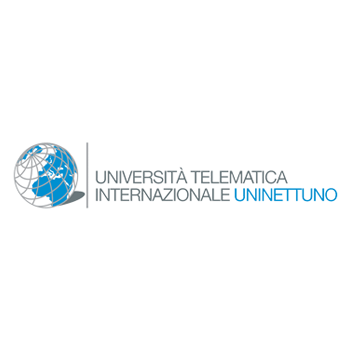
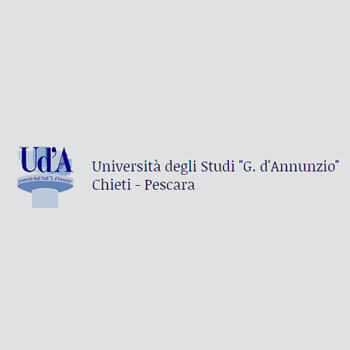


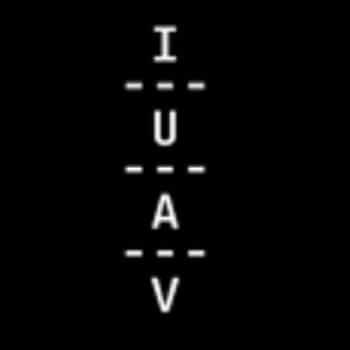
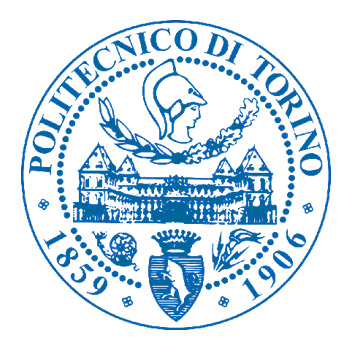
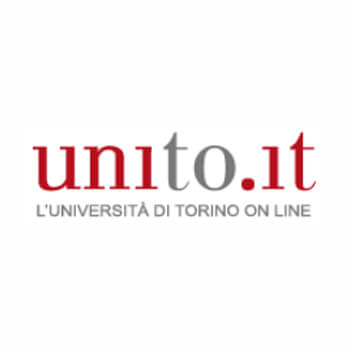
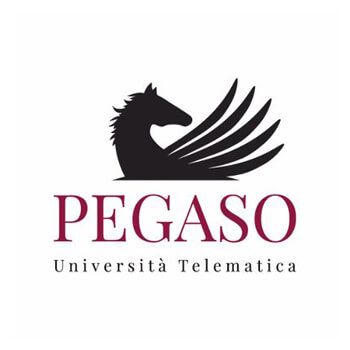










Leave a Reply